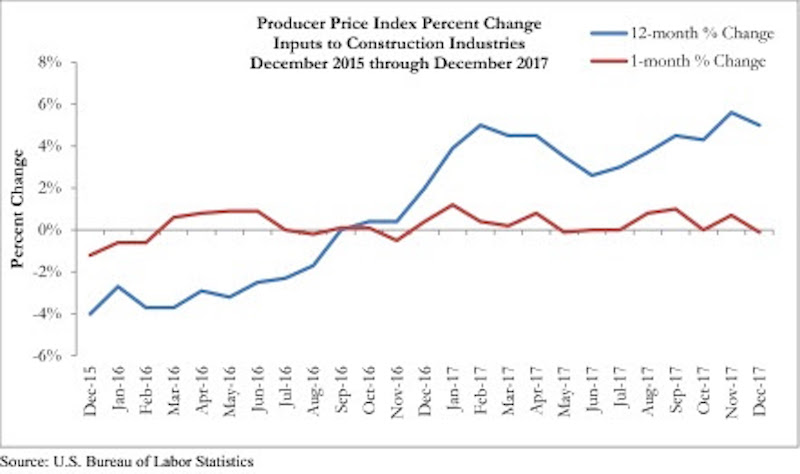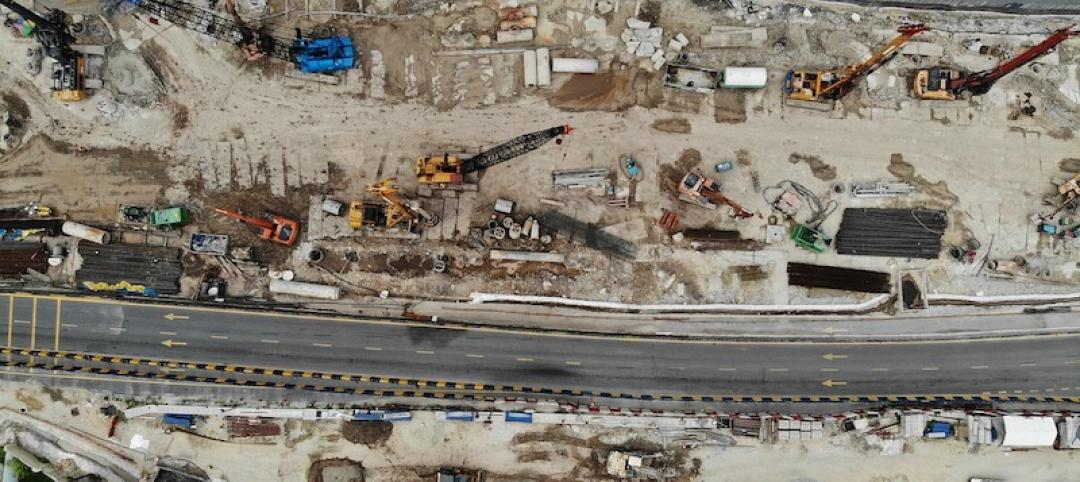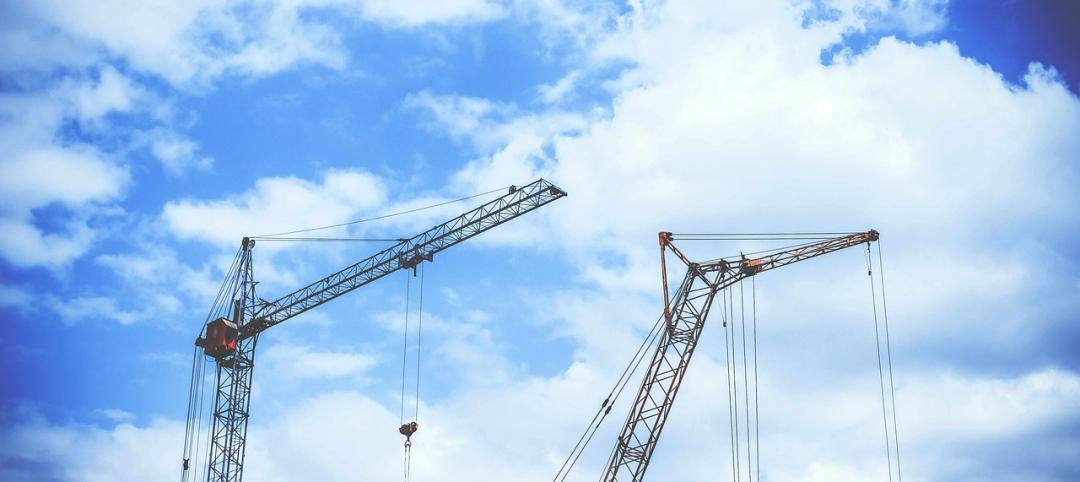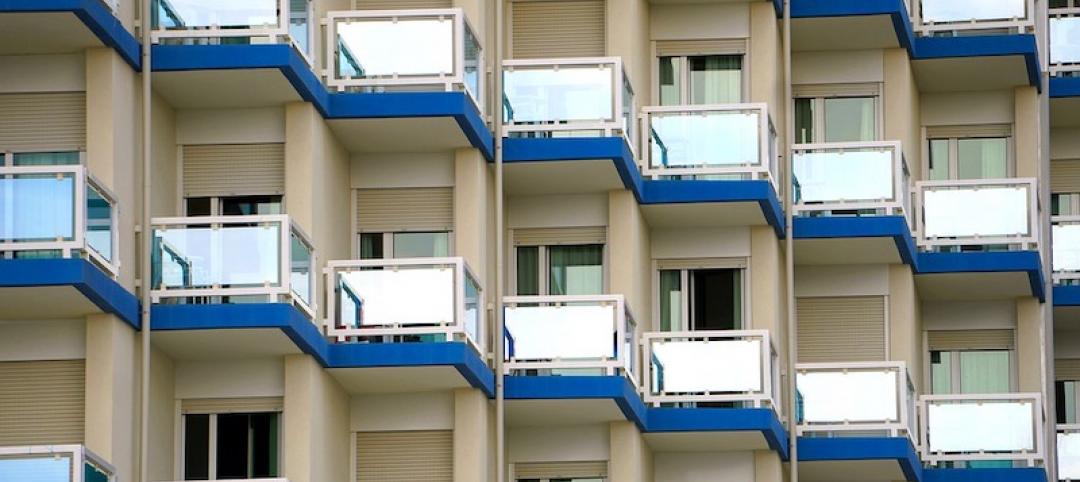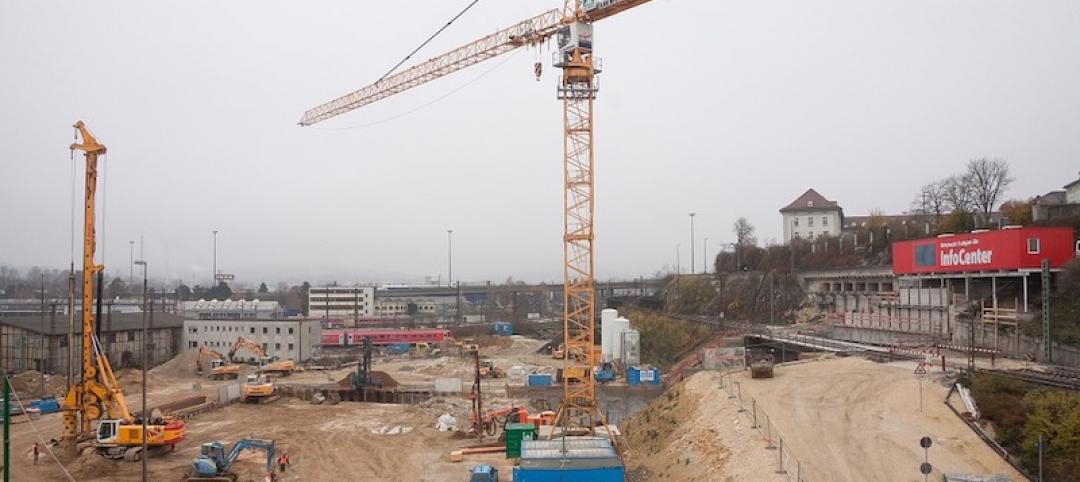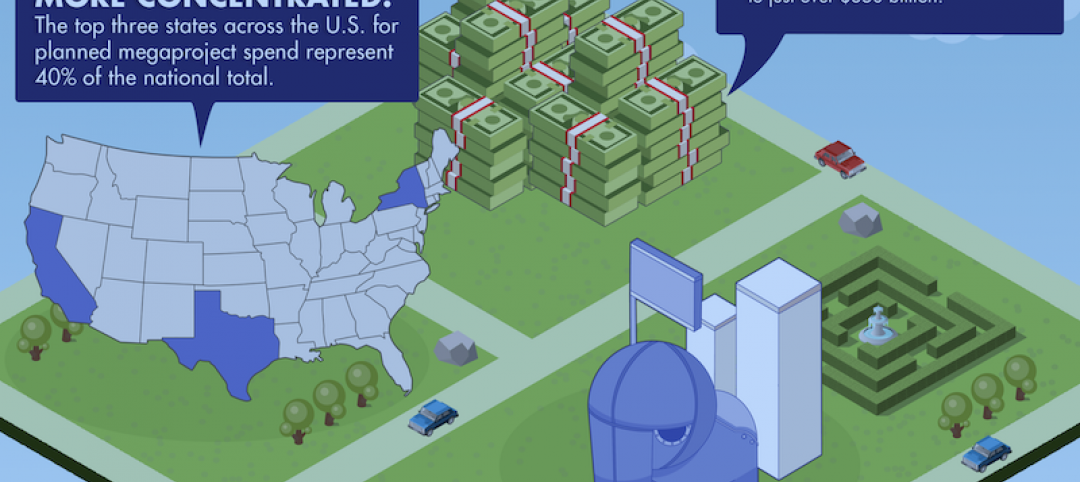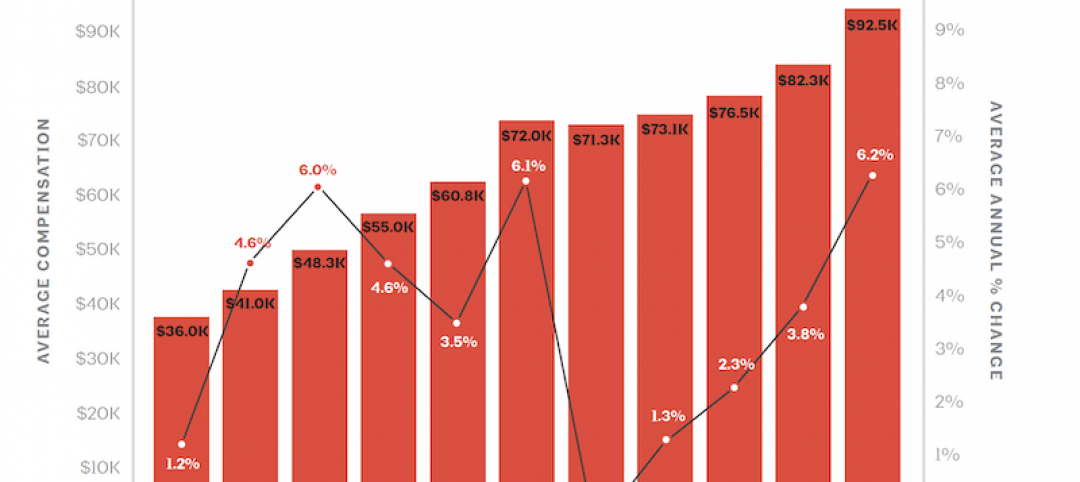Overall construction input prices declined 0.1% in December, yet despite the lack of inflation for the month, prices are up 5% on a year-over-year basis, according to an Associated Builders and Contractors (ABC) analysis of Bureau of Labor Statistics data released today. Nonresidential construction materials prices also declined 0.1% for the month and are up 4.8% from the same time one year ago.
Energy prices have been more volatile lately. Natural gas prices increased 13.7% from November, but are 6.3% lower on a year-over-year basis. Crude petroleum prices rose 16.4% between December 2016 and December 2017 and have been climbing higher during the first days of 2018.
“Given stronger global and domestic economic growth, elevated liquidity in international financial markets, burgeoning trade disputes and efforts by certain energy producers to limit supply growth even as prices rise, one would have expected a sharper increase in construction materials prices in December,” said ABC Chief Economist Anirban Basu. “The fact that inflation remains contained should be viewed by most contractors as very good news. Not only are many contractors vulnerable to sudden increases in certain materials prices, but faster inflation can trigger higher interest rates, which ultimately reduce the demand for construction services.
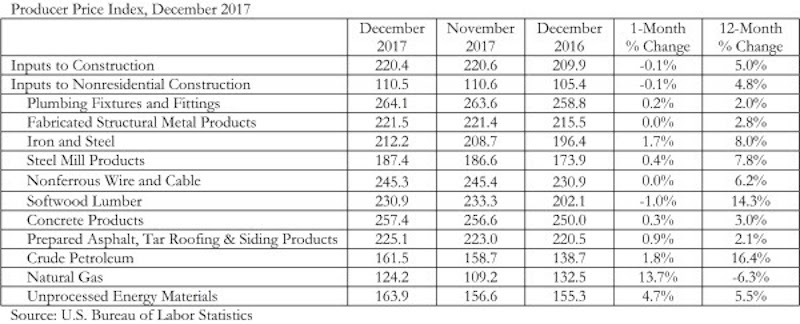
“Though the overall Producer Price Index (PPI) indicates low December inflation, a number of materials prices increased, including iron and steel and the category that includes prepared asphalt,” said Basu. “Softwood lumber prices, by contrast, fell.
“Despite December’s reprieve from rising inflationary pressures, many economists expect inflation to become more apparent as 2018 proceeds,” said Basu. “Recently enacted federal tax cuts stand to supercharge the economy, which should translate into more construction starts later this year and into 2019. At the same time, growth in Europe and in much of Asia remains solid. India’s economy is expected to expand more than 7% this year, and China’s by more than 6%. The upshot is that December’s data may come to represent an exception during an increasingly inflationary period.”
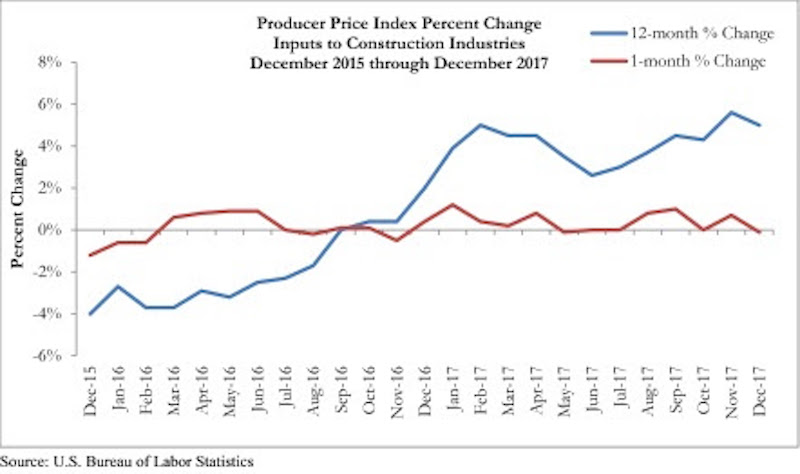
Related Stories
Market Data | Oct 4, 2019
Global construction output growth will decline to 2.7% in 2019
It will be the slowest pace of growth in a decade, according to GlobalData.
Market Data | Oct 2, 2019
Spending on nonresidential construction takes a step back in August
Office, healthcare, and public safety are among the fastest-growing sectors, according to the U.S. Census Bureau's latest report.
Market Data | Sep 27, 2019
The global hotel construction pipeline ascends to new record highs
With the exception of Latin America, all regions of the globe either continued to set record high pipeline counts or have already settled into topping-out formations amidst concerns of a worldwide economic slowdown.
Market Data | Sep 25, 2019
Senate introduces The School Safety Clearinghouse Act
Legislation would create a federally funded and housed informational resource on safer school designs.
Market Data | Sep 18, 2019
Substantial decline in Architecture Billings
August report suggests greatest weakness in design activity in several years.
Market Data | Sep 17, 2019
ABC’s Construction Backlog Indicator inches lower in July
Backlog in the heavy industrial category increased by 2.3 months and now stands at its highest level in the history of the CBI series.
Market Data | Sep 13, 2019
Spending on megaprojects, already on the rise, could spike hard in the coming years
A new FMI report anticipates that megaprojects will account for one-fifth of annual construction spending within the next decade.
Architects | Sep 11, 2019
Buoyed by construction activity, architect compensation continues to see healthy gains
The latest AIA report breaks down its survey data by 44 positions and 28 metros.
Market Data | Sep 11, 2019
New 2030 Commitment report findings emphasize need for climate action
Profession must double down on efforts to meet 2030 targets.
Market Data | Sep 10, 2019
Apartment buildings and their residents contribute $3.4 trillion to the national economy
New data show how different aspects of the apartment industry positively impact national, state and local economies.


